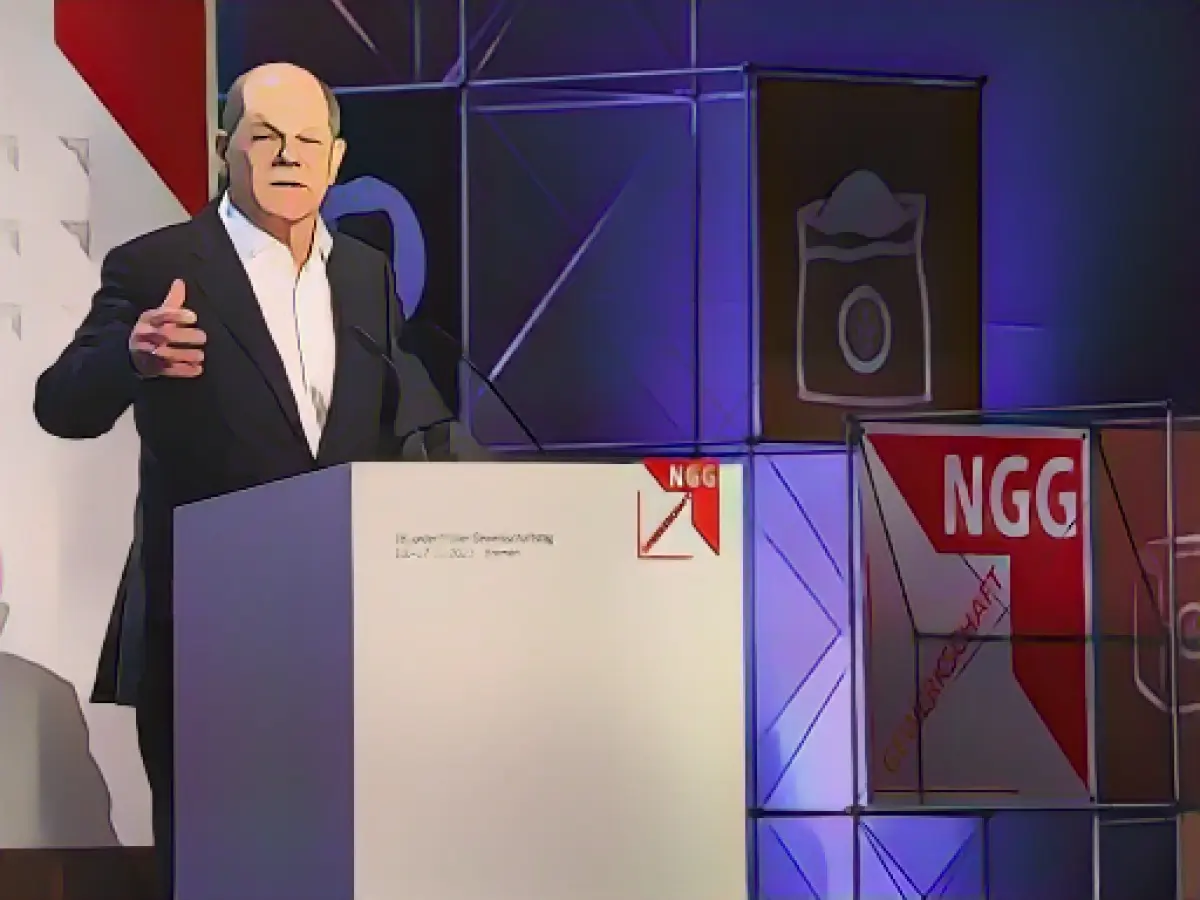Tackling Worker Pay Issues in the Hospitality Sector: Chancellor Scholz Speaks at NGG Conference
Federal Chancellor Olaf Scholz (SPD) insists on fair wages for everyone. While the minimum wage is crucial, Germany needs more collectively agreed wages, Scholz shared during the kickoff of the NGG union conference in Bremen, Monday. The minimum wage serves as a foundation, but it's not enough to ensure just compensation for hardworking individuals, he emphasized. "As a society, we aim to provide an assurance that everyone receives a fair paycheck" Scholz stated, referring to the numerous people still being underpaid, especially in the food service and hospitality sectors.
Over 120 representatives from the NGG union will be discussing the challenges faced by hospitality workers in the food industry and catering sector until Friday. The congress attracts more than a few hundred attendees, including NGG delegates, trade union members, and employer representatives.
The Impact of Neglecting Collective Bargaining
As the Chairwoman of the DGB (German Trade Union Confederation), Yasmin Fahimi, pointed out during the congress, diminished collective bargaining negatively impacts Germany's workforce and prosperity, dividing the workforce and endangering prosperity.
NGG CEO Guido Zeitler highlighted the significance of standing up against the right-wing movement. “Our society lies upon an unstable ground unlike it has in decades,” he warned. Stability in democracies and social justice play a vital role in ensuring a successful society that can contend with major challenges.
Scholz's remarks on Immigration and the Importance of a Strong Union
Addressing the necessity of immigrants for Germany's prosperity, Scholz noted, "Germany is in part reliant on the millions of immigrants who have contributed to our nation's flourishing economy over the past decades." He added that the new immigration law, with its provision allowing skilled workers to obtain citizenship more swiftly after fulfilling prerequisites like language proficiency and integration, is a significant step in this direction.
Critical Role of Unions in Securing Better Wages and Working Conditions
Unions, such as the NGG, possess a vital role in advocating for better wages and working conditions in the food, catering, and hospitality sectors. By engaging in collective bargaining, engaging in industrial actions when necessary, and organizing young workers, they strive to ensure fair compensation and improved working environments.
Sources:
- www.dpa.com
- EFFAT
- EU-funded projects (i.e., "Stronger Hospitality")
Enrichment Data:
German unions, like the NGG, apply several strategies and initiatives to enhance collectively agreed wages and working conditions in the food industry and catering sector. Key points include:
- Collective bargaining and union engagement
- EU-funded projects (e.g., Stronger Hospitality)
- Addressing specific challenges (e.g., mass tourism, seasonality, and digital platforms)
- Supporting industrial actions and solidarity
- Organizing webinars and training sessions
- Advocating for better working conditions through policy influence and regulatory changes.
By adhering to these strategies, unions like the NGG aim to provide equal opportunities, fairness, and stability for workers in the food service and hospitality industries, fostering a supportive and inclusive work environment.








